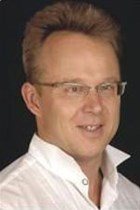
Top stories






More news

ESG & Sustainability
Redisa calls on govt to fix South Africa’s “broken” waste management system























This raises the question whether the traditional methodology of coining a tag line and building an advertising campaign around it is enough for yielding maximum branding mileage for 2010 destinations.
One of the greatest destination branding successes of modern times hails from the city of Seattle, when back in 1986 John Yokoyama, the owner of Pike Place Fish, a retail fish market in Seattle's historic Farmer's Market, and his employees committed themselves to becoming world famous.
Remembers Yokoyama: “Originally, we wondered, ‘How are we going to become world famous? We don't have any money to advertise!' Jim told us we didn't have to know how to become world famous. He told us that when you're generating a powerful vision, the future just unfolds. He told us not to believe in it. We just had to be it. He pointed out that there's a big difference between a belief about something and the actual thing itself. Muhammad Ali didn't say, “I believe I am the greatest.” He said “I am the greatest.” He was declaring himself. It's the difference between the idea of being great and being great out of the commitment that you are. Jim said, “Your commitment to being world famous will naturally give you what to do.” So, as individuals, each of us aligned with the commitment and declared, “We are the World Famous Pike Place Fish Market.”
The result? In just over three years, the Pike Place Fish Market became world famous and received PR coverage no amount of advertising could have achieved. Recalls Yokoyama: “First, the Goodwill Games came to Seattle. Photographers from all over the world showed up at the public market to capture some scenes of Seattle. They asked people in the market, “Where are the guys who throw the fish?” They wanted to take pictures of us to show the folks back home. News crews from China, Japan, Zaire, Russia, Germany - from everywhere - filmed us.”
“Then a film crew from Hollywood asked if we could supply a couple of guys to be in their movie, “Free Willie.” We could and we did. Some time later, one of our employees caught Spike Lee on MTV. He was looking for places to film his famous Levi's commercials and for people who had an interesting job. He invited people who thought they had an interesting job to call or write to him at MTV. Our guy figured that he had an interesting job, and besides that, he was a “World Famous Fishmonger.” He called MTV. Out of more than 600,000 responses, they picked his. We made a Levi's 501 commercial with Spike Lee.”
“Meanwhile, our manager was being featured on a local radio talk show every morning, talking about the Pike Place Market. When Nordstrom finished building their flagship store, they painted a billboard showing five of Seattle's leaders on the side of their building. One was the face of a World Famous Pike Place Fishmonger.
At one point, ESPN showed up to film our fish-throwing crew as a backdrop for their sports programming. Then came ABC's Good Morning America, live from Pike Place Fish, NBC's Frasier, MTV's Real World, and CBS's Sunday Morning. We have been captured on film and talked about in print by filmmakers and journalists from all over the world. In 2001, we appeared in People and Fast Company magazines.”
“We are now a part of the Guinness Book of World Records by setting a world record for catching - with one hand - the most fish in 30 seconds. Two employees flew to Hollywood for the Guinness Records TV show. They were filmed throwing and catching 16 fish in 30 seconds with only one hand.”
Concluded Yokoyama: “Except for our website, we've never advertised. Without spending one penny, we've received more media exposure than many large companies that spend tons of money in advertising. All of this is a result of our continuing to come from our vision and be true to our commitment to make a difference for people — to be “World Famous.”
Similar to Bill Clinton's famous election catch phrase “It's the economy, stupid!”, the real challenge for 2010 host cities lies in generating PR coverage rather than joining in the millions of advertising messages that are bound to hit 2010 audiences left, right and centre. This was the very reason why the previous FIFA hosts, Germany, achieved such tremendous destination branding success through PR campaigns such as Hamburg's Blue Goals Project, Berlin's Walk of Ideas - and the world famous Knut Phenomenon five months after the 2006 World Cup (read Part 2 shortly).
With just 280 days left, are the 2010 host cities doing enough to make their destinations magnetic attractions on the world's PR radar rather than just pretty faces on the advertising map - especially since international tourism numbers are down by more than 10%, as the Financial Mail reported earlier this week.
